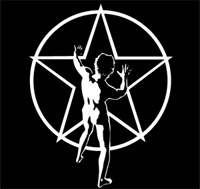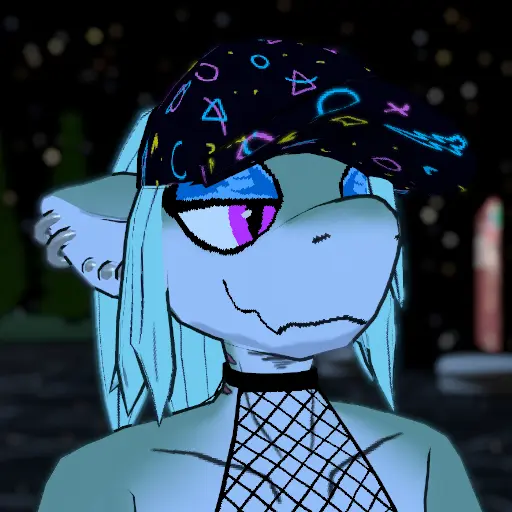Bullshit to Business, Shit as a Service
Thought this was !linkedinlunatics@sh.itjust.works until the check mark
Same. Definitely has that vibe.
This picture makes me nervous, that laptop is going to fall any moment now
It looks like there is a window there. You can see the frame on the right side of the photo.
Yep. Also exposed type A receptacle. OK for table tops. Not OK for outdoor balcony railing.
Good.
The sarcastically-packaged wisdom in this post is important. Thank you for sharing this, OP.
A jail nearby is next to one. It’s very depressing.
Plot twist: Flo is a necromancer
Boy 2 Boy Shit And A Shower
I wish Boost didn’t crash every time I save an image, because I definitely have people to send this to…
Damn I wish we had stuff like this in the states. We’re so weird about death
US doesn’t have graveyards? Do you just burn your dead
they just pile up on the sidewalks. Which is why you can’t just walk everywhere. It’s all just completely covered in piles of corpses
We do ofc they’re just in the middle of nowhere isolated from people. The only time you see graveyards near a town center is when you go to the oldest parts of your city
Nah, I saw place with grave stones and nearby there’s the front of a house literally facing it right across the street, with just a one-way-street’s distance apart. Not even that “isolated” or “middle of nowhere”.
Generally, they will move the graveyard is there’s nearby construction. They need to get permission from the next of kin to do it though. There’s one semi-famous example in New Jersey where they could not find any next of kin for a single grave and ended up building around it. There’s also one graveyard that’s been cut right in half by a highway.
American’s value capitalism more then the Japanese respect their dead, so it’s not hard to convince Americans to truck their ancestors around.
And old age.
I find it odd that we doubt the afterlife.
This is a universe where nothing is ever truly created or destroyed, merely changing form from one thing to another.
And yet the view we associate with “Science!” is that conciousness is the one exception? What makes you think you’re so special that the universe will only experience you for a limited time? You’re not a happy meal promotion, you’re as immortal as everything else.
I don’t know about “afterlife” as in heaven or hell. I do think that there’s some sort of energy not yet possible to measure with current technology. Some energy that goes on and form a part of a different living being. Not as in “reincarnation” where its based on some sort of “diety” or “karma”, but just pure randomness. Now you’re a human, maybe later your energy (or “soul”) goes into an insect, or a cat (oh I love to become a cat). Humans couldn’t see radiowaves for millions of years, perhaps the “soul” is just something we haven’t developed the technology to see yet.
But for now, we can’t prove it, so its just philosophy at this point, not scientific. Maybe we’ll become some other living being again, maybe not, who knows…
I personally believe we’re just energy that drifts when we die, and inhabit something else, over and over again. Kinda depressing when you really think about it. Forever cused to just die over and over again.
Information is destroyed all the time, conciousness is just information, and will cease to exist in a meaningful form when the structure of matter hosting it (your body, and in particular your brain) ceases to function in a way that supports that.
The energy that motivated your body and acted as signals in your brain will disipate. Your actual matter will stick around in one form or another. After all, we are all “star stuff”, and given long enough, our “stuff” will return to the universe at large.
I’m sorry, maybe I’m just dumb, but I didn’t think information could be destroyed.
Black holes are a good example of information destruction. Matter and energy fall into the gravity well, and eventually are reemited as Hawking radiation, but as far as current theories go, there’s no way to reconstruct the information that made up the original matter or energy from that radiation.
Information isn’t a “thing” but the relationship between, and exact quantum state of, things. Once that state is disrupted, the information is gone.
Black holes are a good example of information destruction.
That was actually debunked https://www.quantamagazine.org/the-most-famous-paradox-in-physics-nears-its-end-20201029/
Unless I still misunderstand.
No, you understand correctly. Notabot just doesn’t know what they’re talking about
deleted by creator
Consciousness isn’t a tangible thing. It’s just a label we use for a type of brain behavior. Once there’s no brain, there’s no more behavior. Just like once your heart dies, there’s no more heartbeat.
I dunno we still see things like Terminal Lucidity and NDEs all the time.
One of those is pre-death and the other is near-death. I don’t see how either suggests that there’s some ghost-brain that functions after death.
Saying “Oh that’s just near death. Never mind that we are seeing active consciousness where none should exist.”
Isn’t that just moving the goal post at the end of the day?
How do you define consciousness?
If it’s any kind of complex system, then of course it can be permanently destroyed. The same way that a computer or a building or a car can be destroyed and not exist anymore, even if its physical components still do.
And if consciousness is a material or an energy or something real, what’s the evidence that it even exists? Why do you believe it exists?I believe it is something simple we do not yet have the capacity to measure and that which can not be recreated as an AI.
Why do I believe it exists? Because I experience it constantly.
I am going to tell you something based on a true story about a spring in Rome believed to cure disease. For centuries even after the fall of the Empire fell people flocked to it believing the Gods blessed it with healing properties.
The scientific minded said bad to the whole thing and assumed it nothing but a legend that fools took stock in. However people continued to come and be healed, no one could explain it.
Until the invention of the Geiger Counter and the discovery of radiation.
The legend had been true all along. The spring had been mildly radioactive! It was killing off what was killing the patrons!
No one had anyway of knowing until suddenly they did.
I believe conciousness to be a similar story that we haven’t seen the end of. Perhaps free will is one as well.
I find it odd that we doubt the afterlife.
Most people don’t, unfortunately.
How do you define consciousness? How do you define “you”?
I believe that consciousness is simply an emergent property of our brain. Without the brain, there is no consciousness. A brain can be destroyed, just like a hard drive can be destroyed. Sure, the atoms are still there, but the “you” inside of them is as good as gone.
The problem with Emergentism is that it doesn’t really have evidence beyond throwing our hands up and going “We can’t find anything in there that causes it but we see there’s conciousness. So… it just emerges somehow”
It’s just “spontaneous generation” (what people believed before Germ Theory) for the brain. It’s very “God of the Gaps” in a way.
I’d sooner put stock into the Orch-OR theory than take emergentism too seriously.
I can see why you’d draw those comparisons to “spontaneous generation” or “God of the Gaps” – it’s a common misconception when people first encounter the idea of emergence. However, that’s not quite what Emergentism, especially in the context of consciousness, is suggesting.
The key difference is that emergent properties aren’t truely “spontaneous” or without a basis in the underlying components. Instead, they arise from complex interactions between those components, often in ways that are not easily predictable from studying the individual parts alone.
Think of it like this:
- Water’s wetness: A single H2O molecule isn’t wet. Wetness emerges from the collective behavior and interactions of many water molecules. We don’t say wetness is “spontaneous generation” of a property, but rather a property of the system.
- A hurricane: A hurricane is a complex, self-organizing system with emergent properties like its destructive power and eye. These properties aren’t found in individual air molecules or even small air currents; they emerge from the large-scale interactions of atmospheric conditions.
In the context of consciousness, an emergentist perspective suggests that consciousness isn’t located in a single neuron or even a small group of neurons, but rather emerges from the intricate network activity and complex interactions of billions of neurons in the brain. It’s not about throwing our hands up and saying ‘it just happens.’ It’s about recognizing that complexity can give rise to novel properties that aren’t reducible to the sum of their parts.
The challenge isn’t a lack of evidence that something is happening (we clearly observe consciousness), but rather the difficulty in fully understanding and mapping the incredibly complex mechanisms that lead to this emergent phenomenon. It’s an active area of research, and while we don’t have all the answers, it’s a far cry from “God of the Gaps” because it proposes a naturalistic, albeit complex, explanation rather than invoking something supernatural.
While theories like Orch-OR offer a different approach, many neuroscientists find the emergentist framework more consistent with how complex systems behave in other areas of science.
It’s not similar to “god of the gaps” at all, as I’m not inserting anything inside of that gap. I have no fucking clue what’s causing it to emerge, and I probably never will. Rather than saying “I don’t know what’s causing lightning so it must be Zeus,” I’m saying “I don’t know what’s causing lightning, but I can see it’s coming from the sky.” Or in this case, I have no idea what’s causing us to experience consciousness, but it seems to be a result of our brain.
And I see no evidence for the idea that consciousness can even exist outside of the brain, nor that an afterlife exists.
As far as I see there are correlations with the brain, but until I see a smoking gun I don’t feel it appropriate to say causation.
However I don’t think anyone out there, even the most diehard believer in whatever mysticism you fancy would go as far as to say there aren’t correlations.
That said correlations appear to be all there are.
Edited for clarity
It’s 50/50 for me. I think with what we know about science it seems pretty clear that we end when we die. And with all that we DON’T know about science it seems just as possible that consciousness is eternal.
It took me a while to find, but stuff like this research from Yale, reviving organs and brain function long after the point of death, makes it apparent that what it means to die is just as complex a question as what makes us us.













